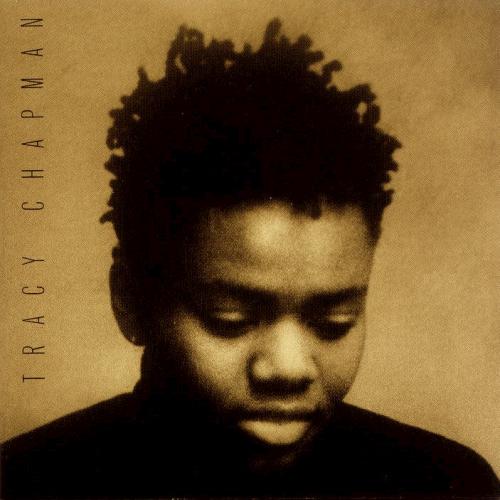Now Playing
Current DJ: Mike Bennett
Yesness Nice Walrus (Featuring: Kishi Bashi) from See You at the Solipsist Convention (Joyful Noise) Add to Collection
Requests? 773-DJ-SONGS or .(JavaScript must be enabled to view this email address)
 For today's Rediscovering Our Record Collections, I'm examining one of my on-and-off-again favorite singer-songwriter albums, the 1988 self-titled debut by Tracy Chapman.
For today's Rediscovering Our Record Collections, I'm examining one of my on-and-off-again favorite singer-songwriter albums, the 1988 self-titled debut by Tracy Chapman.
Chapman came from the coffeehouse scene on the East coast, seemingly out of nowhere, as something of an oddity: an African American female folk rock singer-songwriter at a time when most black female music stars were associated with R&B, pop, and the emerging hip hop scene. Chapman, originating from Ohio, gained a sizable audience with her haunting voice and the acoustic hooks in songs like "Fast Car" and "Talkin' Bout a Revolution." I read in an essay on the album and its success that somewhere Chapman was contrasted with Madonna as "The Anti-Material Girl," which, for the album's lyrics alone (if not always its impact), seems fitting. Chapman was tackling contemporary issues of poverty, domestic violence, and political turmoil at a time when pop music seemed far away from such concerns.
Or so I'm told. I first heard the album on a cassette tape around 2000, around age 11, after my mother purchased some of Chapman's work after I introduced her to the song "Give Me One Reason," Chapman's "comeback" single from the mid-'90s. The album reminded me of some '60s folk rock I had grown up listening to by the likes of Bob Dylan as well as more mellow acts like Peter, Paul & Mary, but in retrospect, I may have passed over some of the album's anger for what I thought sounded catchy. But as a lonely kid, I used the music and Chapman's voice as what an essay on the album called "a safe and soothing balm" rather than as a tool for rebellion or revolution.
To this day, when I hear "Fast Car"--one of my favorite songs of all time--my brain jumps straight to that chorus because it sounds hopeful and like an anthem. "I had a feeling that I belong" sounded like a longing very close to my heart. Still, some of my other favorite tracks on the album, like "For My Lover," are a lot darker than they might appear if heard passively--without paying attention to the lyrics. So even as I grew up to comprehend more aspects of what Chapman is singing about, the album remained important to me for that voice and those hooks.
That said, various reading materials analyzing the music have provided important tools for critical listening. Here is a video blog entry I recorded on the album and surrounding issues of social justice last year.
A final note: one common thing noted about Chapman's career is that she never really duplicated the success of this album again, commercially or artistically. Most of the songs I've heard from her after this album do not come close to the quality of "Fast Car," but there are occasionally some quite touching gems, like "At This Point in My Life" (1995, from New Beginning) and "Paper and Ink" (2000, from Telling Stories). But by and large, Chapman's legacy will rest on this album, which is quite alright with me.
Next entry: Weekly Voyages: Friday 10/25 to Thursday 10/31
Previous entry: CHIRP Radio Welcomes King Khan and the Shrines to Bottom Lounge on Wednesday, October 23rd!